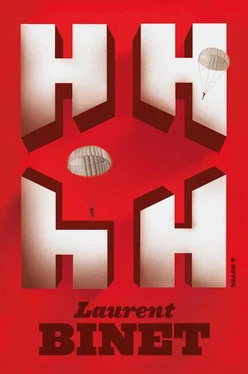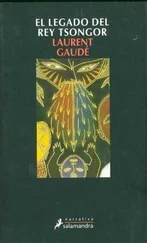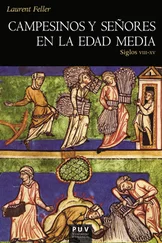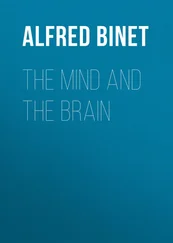Laurent Binet - HHhH
Здесь есть возможность читать онлайн «Laurent Binet - HHhH» весь текст электронной книги совершенно бесплатно (целиком полную версию без сокращений). В некоторых случаях можно слушать аудио, скачать через торрент в формате fb2 и присутствует краткое содержание. Город: New York, Год выпуска: 2012, ISBN: 2012, Издательство: Farrar, Straus and Giroux, Жанр: Историческая проза, на английском языке. Описание произведения, (предисловие) а так же отзывы посетителей доступны на портале библиотеки ЛибКат.
- Название:HHhH
- Автор:
- Издательство:Farrar, Straus and Giroux
- Жанр:
- Год:2012
- Город:New York
- ISBN:978-0-374-16991-6
- Рейтинг книги:3 / 5. Голосов: 1
-
Избранное:Добавить в избранное
- Отзывы:
-
Ваша оценка:
- 60
- 1
- 2
- 3
- 4
- 5
HHhH: краткое содержание, описание и аннотация
Предлагаем к чтению аннотацию, описание, краткое содержание или предисловие (зависит от того, что написал сам автор книги «HHhH»). Если вы не нашли необходимую информацию о книге — напишите в комментариях, мы постараемся отыскать её.
HHhH — читать онлайн бесплатно полную книгу (весь текст) целиком
Ниже представлен текст книги, разбитый по страницам. Система сохранения места последней прочитанной страницы, позволяет с удобством читать онлайн бесплатно книгу «HHhH», без необходимости каждый раз заново искать на чём Вы остановились. Поставьте закладку, и сможете в любой момент перейти на страницу, на которой закончили чтение.
Интервал:
Закладка:
Raoul Hilberg sees in this “policing point of view” the prism through which Heydrich views both his job and German society: the entire population is considered a sort of auxiliary police force, responsible for surveying and reporting any suspect behavior among the Jews. The Warsaw Ghetto uprising in 1943, which will take the German army three weeks to crush, proves Heydrich right: you can’t trust those Jews. He also knows, of course, that germs do not racially discriminate.
77
Physically, Monsignor Jozef Tiso is small and fat. Historically, he belongs with the biggest collaborators—his role as the Slovak version of Pétain being determined by the hatred he feels for centralized Czech power. The archbishop of Bratislava has worked his whole life for his country’s independence and today, thanks to Hitler, he achieves his goal. On March 13, 1939, as the Wehrmacht’s regiments prepare to invade Bohemia and Moravia, the chancellor of the Reich invites the future Slovak president into his office.
As always, Hitler talks and the other person in the room listens. Tiso isn’t sure if he should be happy or fearful. His long-held wish is finally coming to pass—but why must it come in the form of blackmail and an ultimatum?
Hitler explains: were it not for Germany, Czechoslovakia would have been much more badly damaged. By contenting itself with the annexation of the Sudetenland, the Reich has made a great show of leniency. But are the Czechs grateful? Not in the slightest! In recent weeks the situation has become impossible. Too many provocations. The Germans who live there are oppressed and persecuted. It’s the spirit of the Beneš government come back to haunt them. At the mention of his name, Hitler becomes heated.
The Slovaks have disappointed him. After Munich, Hitler fell out with his Hungarian friends because he wouldn’t let them take over Slovakia. He was under the impression that the Slovaks wanted their independence.
So, yes or no, does Slovakia want its independence? It is a question not of days but of hours. If Slovakia wants its independence, Hitler will help: he will take the country under his protection. But if the Slovaks refuse to be separated from Prague, or if they even hesitate, he will abandon Slovakia to its fate: the country will be at the mercy of events for which he will no longer be responsible.
At this precise moment, Ribbentrop enters and hands Hitler a report, claiming it has just arrived. The report reveals the movements of Hungarian troops at the Slovak border. This little scene allows Tiso to comprehend the urgency of the situation—if he hadn’t already. It also makes his choice quite clear: either Slovakia declares its independence and its allegiance to Germany, or it is swallowed up by Hungary.
Tiso replies: the Slovaks will show themselves worthy of the Führer’s kindness.
78
In return for the transfer of the Sudetenland to Germany, the integrity of Czechoslovakia’s new borders was guaranteed at Munich by France and Britain. But Slovakia’s independence alters the deal. Is it possible to protect a country that no longer exists? The commitment was made to Czechoslovakia, not to the Czechs alone. This, at least, is how the British diplomats reply when their counterparts from Prague come to ask for their help. We are now on the eve of the German invasion, and it turns out it is perfectly legal for France and Britain to act like cowards.
79
On March 14, 1939, at 10:40 p.m., a train coming from Prague arrives at Anhalter Bahnhof in Berlin. An old man dressed in black gets off the train: balding, dull-eyed, droopy-lipped. President Hácha, who replaced Beneš after Munich, has come to beg Hitler to spare his country. He didn’t take the plane, because he has a heart condition. He is accompanied by his daughter and by his foreign minister.
Hácha is fearful of what awaits him here. He knows that German troops have already crossed the border and that they are massing around Bohemia. The invasion is imminent, and he has come all this way only to negotiate an honorable surrender. I imagine he would be willing to accept similar conditions to those imposed on Slovakia: independent nationhood but under German protection. What he fears is nothing less than the total disappearance of his country.
So how surprised he must be, as soon as he sets foot on the platform, to be welcomed by a guard of honor. The foreign minister, Ribbentrop, has come in person. He gives Hácha’s daughter a beautiful spray of flowers. The procession that accompanies the Czech delegation is worthy of a head of state—which he still is, of course. Hácha breathes more easily. The Germans have put him in the best suite of the luxurious Hotel Adlon. On her bed his daughter finds a box of chocolates: a personal gift from the Führer.
The Czech president is taken to the chancellery, where the SS forms a guard of honor. By this point, Hácha is feeling much better.
His impression changes slightly when he enters the chancellor’s office. Hitler is flanked by Göring and Keitel, the heads of the German army, and their presence is not a good sign. Hitler’s expression, too, is not what Hácha might have hoped for after his lavish welcome. The little serenity that he had managed to recover quickly vanishes, and Emil Hácha finds himself sinking into the quicksand of history.
“I can assure the Führer,” he says to the interpreter, “that I have never got mixed up in politics. I have never had any involvement, so to speak, with Beneš and Masaryk, and whenever I’ve been in their company I’ve found them disagreeable. I have never supported the Beneš government, indeed I have always opposed it, so much so that after Munich I wondered if it was even a good idea to remain as an independent state. I am convinced that Czechoslovakia’s destiny is in the Führer’s hands, and that it is in good hands. The Führer, I am certain, is precisely the right man to understand my point of view when I tell him that Czechoslovakia has the right to exist as a nation. We have been blamed because there are still too many Beneš partisans, but my government is doing all it can to silence them.”
Now Hitler begins to speak, and his words—according to the interpreter’s version of events—turn Hácha to stone.
“The long journey undertaken by the president, despite his age, can be of great help to his country. Germany is indeed ready to invade in the next few hours. I do not harbor a grudge against any nation. If this stump of a state, Czechoslovakia, has continued to exist, it is only because I wished it to, and because I have loyally honored my commitments. But even after Beneš’s departure, your country’s attitude has not changed! I did warn you! I said that if you kept provoking me, I would utterly destroy the Czechoslovak state. And still you provoke me! Well, the dice have been rolled now… I have given orders to German troops to invade your country and I have decided to incorporate Czechoslovakia into the German Reich.”
The interpreter said of Hácha and his minister: “Only their eyes showed they were still alive.”
Hitler continues:
“Tomorrow at six a.m., the German army will enter Czechoslovakia from all sides and the German air force will occupy all the airfields. Two outcomes are possible.
“Either the invasion gives rise to fighting: in this case we will use brutal force to smash all resistance.
“Or the invasion will be allowed to occur peacefully, in which case I will grant the Czechs a regime that is to a large extent their own… giving them autonomy and a certain amount of national liberty.
“I am not moved by hatred. My only goal is the protection of Germany. But if Czechoslovakia had not given in to my demands at Munich, I would have exterminated the Czech people without hesitation, and nobody would have been able to stop me! Today, if the Czechs want to fight, the Czech army will cease to exist within two days. There will naturally be victims among the German army too: this will feed a hatred of the Czech people that will prevent me, out of self-preservation, from granting the country any autonomy.
Читать дальшеИнтервал:
Закладка:
Похожие книги на «HHhH»
Представляем Вашему вниманию похожие книги на «HHhH» списком для выбора. Мы отобрали схожую по названию и смыслу литературу в надежде предоставить читателям больше вариантов отыскать новые, интересные, ещё непрочитанные произведения.
Обсуждение, отзывы о книге «HHhH» и просто собственные мнения читателей. Оставьте ваши комментарии, напишите, что Вы думаете о произведении, его смысле или главных героях. Укажите что конкретно понравилось, а что нет, и почему Вы так считаете.












